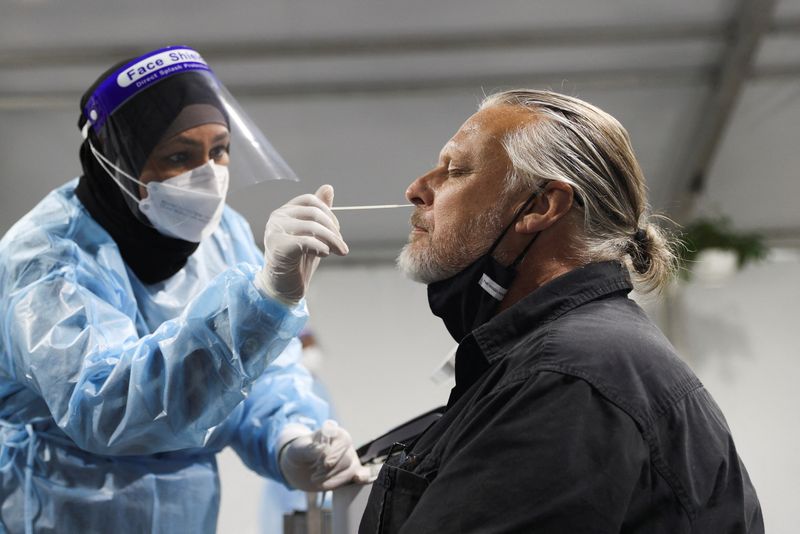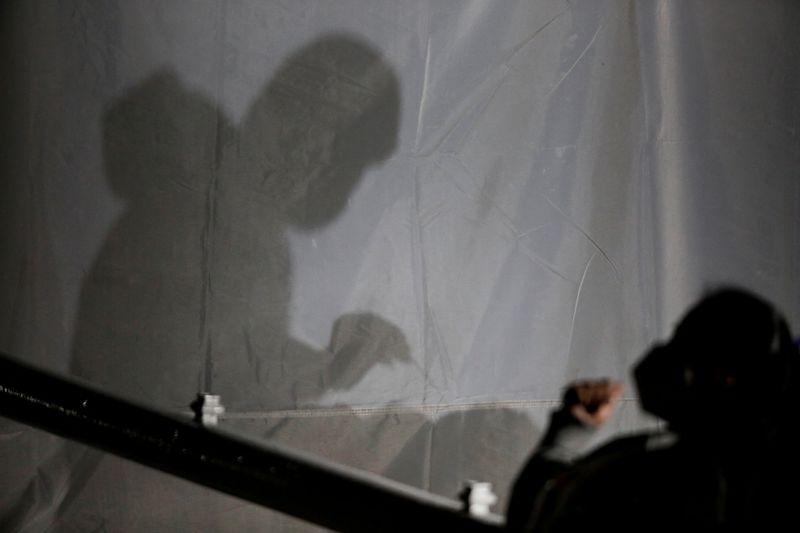(Reuters) – Here’s what you need to know about the coronavirus right now:
COVID reported on Australian aid vessel sailing to Tonga
About two dozen cases of COVID-19 have been recorded among the crew of an Australian warship expected to arrive in coronavirus-free Tonga on Wednesday to deliver humanitarian aid, Australian authorities said on Tuesday.
Tonga, hit by a massive volcanic eruption and a tsunami on Jan. 15, has asked for aid to be delivered without human contact amid concerns a COVID outbreak would be devastating for the tiny Pacific island nation.
U.S. COVID deaths rise
Even as COVID-19 cases drop and hospitalisations show signs of plateauing in hard-hit pockets of the United States, the still-rising death toll from the Omicron variant highlights the trail of loss that follows every virus surge.
The Omicron death toll has now surpassed the height of deaths caused by the more severe Delta variant when the seven-day average peaked at 2,078 on Sept. 23 last year. An average of 2,200 people a day, mostly unvaccinated, are now dying due to Omicron. That is still below the peak of 3,300 lives lost a day during the surge in January 2021 as vaccines were just being rolled out.
Japan panel to approve extending COVID curbs to more regions
A Japanese government advisory panel is set to approve expanding stricter anti-COVID-19 measures to 18 additional regions, including the western Osaka and Kyoto prefectures, on Tuesday, putting over 70% of the country under restrictions.
The restrictions will be enforced from Thursday through Feb. 20, and governors in those regions can request restaurants and bars to shorten business hours and stop serving alcohol.
S.Korea’s daily COVID count tops 8,000 for first time
South Korea’s daily count of new coronavirus cases topped 8,000 for the first time on Tuesday, as the Omicron variant spreads rapidly despite the recent extension of strict social-distancing rules to slow infection.
Prime Minister Kim Boo-kyum issued a special statement on Monday to plead for people to refrain from travel and gatherings during the Lunar New Year holidays, which starts on Saturday.
Omicron survives longer on plastic and skin
The Omicron variant can survive longer than earlier versions of the coronavirus on plastic surfaces and human skin, Japanese researchers found in laboratory tests. Its high “environmental stability” – its ability to remain infectious – might have helped Omicron replace Delta as the dominant variant and spread rapidly, they said.
On plastic surfaces, average survival times of the original strain and the Alpha, Beta, Gamma and Delta variants were 56 hours, 191.3 hours, 156.6 hours, 59.3 hours, and 114.0 hours, respectively. That compared to 193.5 hours for Omicron, the researchers reported on bioRxiv ahead of peer review.
(Compiled by Karishma Singh; Editing by Kenneth Maxwell)

























